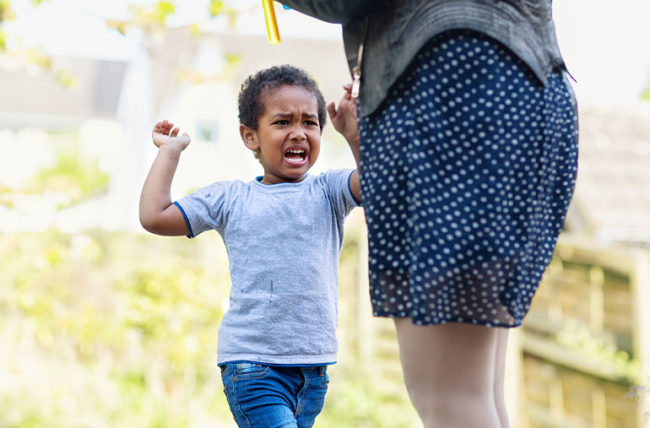Aggression in all of its forms (fighting, scratching, biting, hitting, pushing, kicking, bullying) means:
- An aggressive child is a scared and frightened child. She feels isolated and alone.
- An aggressive child may or may not know the source of his fear, but he feels it inside his body.
- An aggressive child does not have the cognitive abilities to speak about their fears, therefore they act them out.
- An aggressive child needs your help to reconnect with you once again.
No child is born with a desire to fight or hurt another child. We, as parents, must become conscious of this truth and fully assume the responsibility that, if our child has become overly aggressive, he or she is lacking connection, attention and affection.
Trying to stop the aggression with aggression will not work. Rewards for “good behavior” will not work either, and will destroy a child’s healthy sense of Self, which comes from feeling unconditionally accepted and loved for who they are innately.
You can help your child heal the fear that is keeping her / him stuck in aggression:
- Pay attention to your own reaction first; if you lose your calm, walk away or lay down on the floor for 5 minutes ; you need to come back into the present moment and address the need behind the behavior, not the behavior itself;
- Set a gentle but firm limit if your child is unsafe, or is hurting you or another child;
- Make daily connection a priority for the next 3-6 months in your relationship with your child; you will not see changes over night, but changes will eventually take place;
- A daily connection is 1:1 uninterrupted time with your child. Make sure you are not distracted by your phone, TV, cooking, other chores or parallel conversations. Start with 10- 20 minutes each day. This is called “Special Time”.
- Train yourself to be playful. Wrestle. Roughhouse. Get on the floor in physical play. Let your child lead you and do not tickle or over-power her. Aggression against YOU may show up in play. This is a good sign, set a limit, and anticipate hurt feelings to show up.
- Listen to feelings. Do not interrupt crying. This is when your child is healing the fear.
